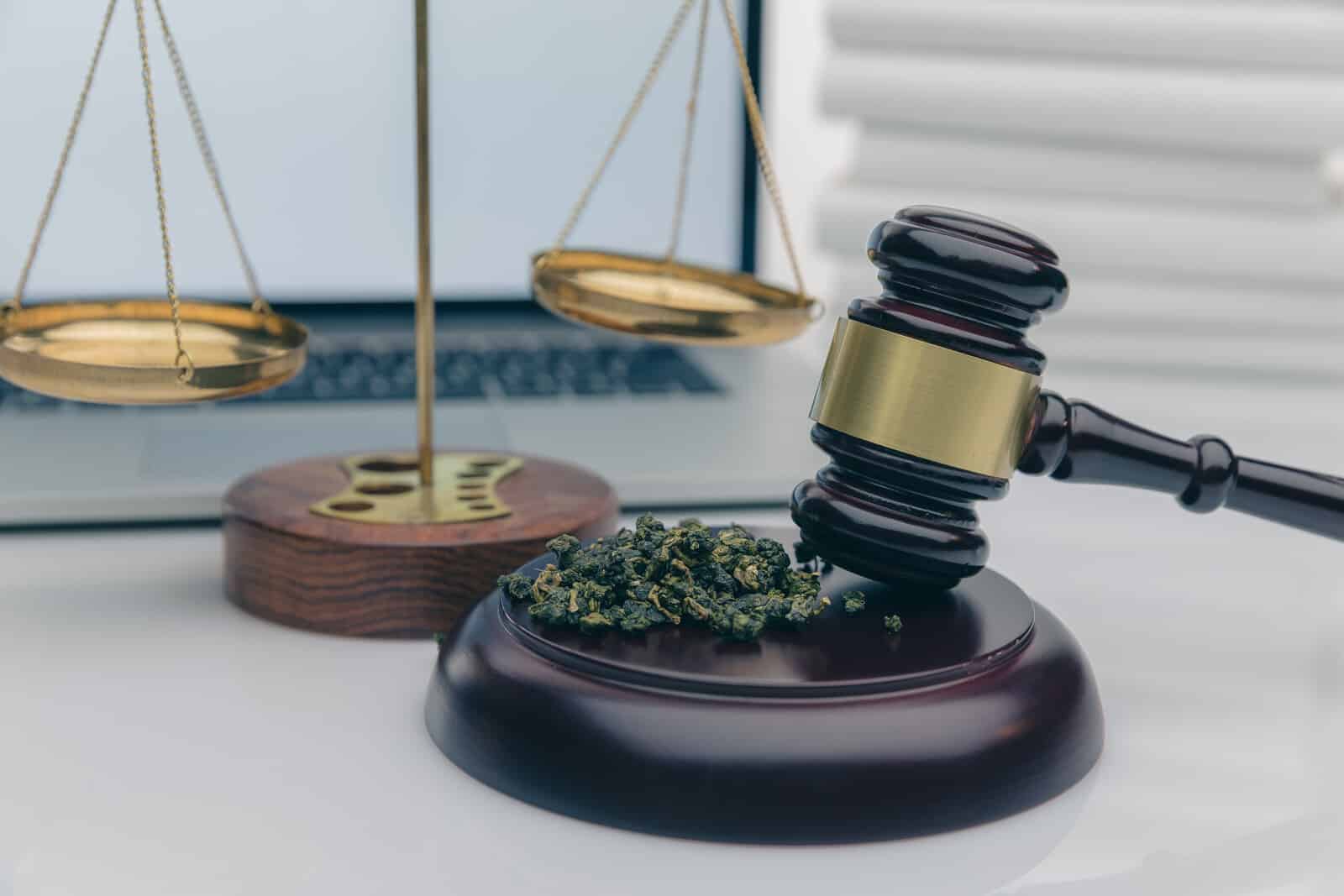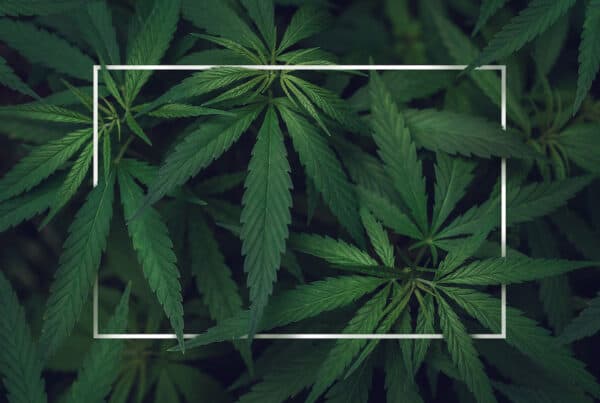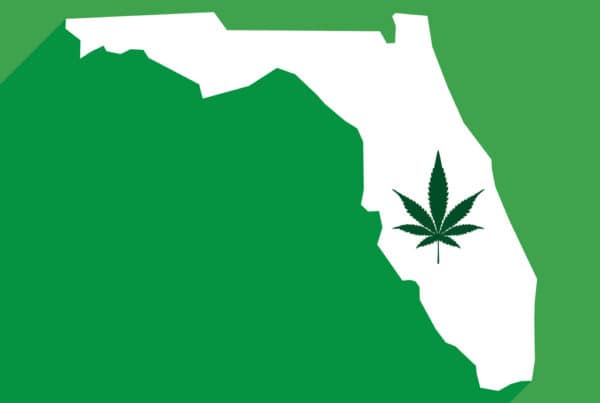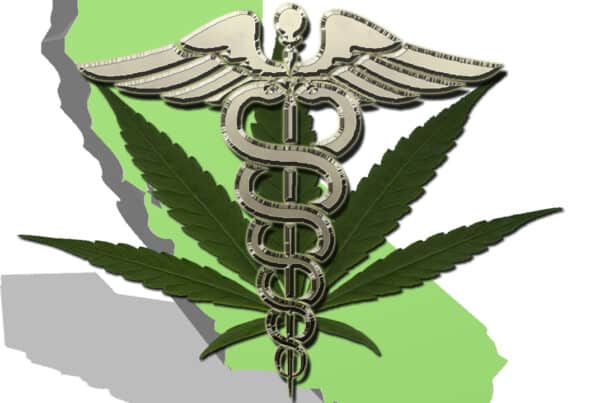TABLE OF CONTENTS
Federal legalization of weed has never been closer. Cannabis prohibition has been the norm for decades, but majority of U.S. states have passed medical marijuana laws and almost half have passed adult-use cannabis laws.
Cannabis laws are changing fast. Our federal cannabis legalization guide gives you a snapshot into the current state of the U.S. cannabis market and gives you an insight into what the future holds for the industry.
Is Cannabis Federally Legal?
Currently, cannabis is not legal on a federal level. In fact, cannabis is listed as a Schedule I substance in the Controlled Substances Act of 1970. Schedule I drugs are classified as drugs without any medicinal value and with a high risk for abuse.
Schedule I drugs include:
- Heroin
- LSD
- Cannabis
- Peyote
- Ecstasy
- Psilocybin
Now, the federal and state laws can get confusing since some states have legalized cannabis for medical and recreational use while the drug is considered a dangerous substance by the federal government.
As of July 2023, medical cannabis use is legal, with a doctor's recommendation, in 40 states and 4 out of the 5 U.S. territories, and the District of Columbia. 12 other states have limits on THC concentration in CBD-rich products. The Rohrabacher-Farr Amendment prevents federal prosecution of people complying with state medical cannabis laws.
Recreational cannabis use is legal in 24 states, the District of Columbia, Guam, and the Northern Mariana Islands.
While cannabis remains federally illegal, the Food and Drug Administration (FDA) has approved some derivative compounds for medical use. The FDA has approved cannabinoid-based drugs such as Marinol (THC), Cesamet (nabilone), Syndros (THC), and Epidiolex (CBD).
The 2018 Farm Bill legalized the production of hemp allowing individuals to purchase hemp-derived CBD products without a prescription. However, hemp laws vary by state.
Which States Have Legalized and Prohibited Cannabis?
Cannabis is legal for medical and recreational use in the following states:
- Alaska
- Arizona
- California
- Colorado
- Connecticut
- Delaware
- District of Columbia
- Illinois
- Maine
- Massachusetts
- Michigan
- Minnesota
- Missouri
- Montana
- Nevada
- New Jersey
- New Mexico
- New York
- Ohio
- Oregon
- South Dakota
- Vermont
- Virginia
- Washington State
Cannabis is legal for medical use only in the following states:
- Alabama
- Arkansas
- Florida
- Georgia
- Hawaii
- Iowa
- Louisiana
- Maryland
- New Hampshire
- North Dakota
- Oklahoma
- Pennsylvania
- Rhode Island
- Texas
- Utah
- West Virginia
Biden and Legalization
Biden has expressed his support for federal marijuana decriminalization, expungement of past records, and medical cannabis legalization, but has not expressed his support for adult-use legalization.
In the 1980s and 1990s, Biden was a big proponent of enacting punitive anti-drug legislation as a senator. In the past, he has supported laws that enacted federal mandatory minimum sentences for drug trafficking and increased funding for prisons.
Fortunately, his views on cannabis have evolved over the years, although they are not as progressive as many Americans would like.
President Biden holds similar views as adults aged 75 and older. Only 32% of this age group support recreational and medical marijuana use. That is the lowest share for any age category and considerably lower than adults in the next oldest age group, ages 65 to 74, with 63% support for adult-use and medical cannabis.
Despite President Biden's support for certain cannabis reform, he remains firm on opposing cannabis legalization. Currently, Senate Majority Leader Chuck Schumer unveiled a proposal that would legalize marijuana and expunge non-violent criminal records related to marijuana.
Democrats and Marijuana Legalization
Based on recent polling from the Pew Research Center, 72% of Democrats and Democrat learners support cannabis legalization for medical and recreational use. An additional 23% believe cannabis should be legal for medical use only.
63% of conservative and moderate Democrats believe cannabis should be legal for medical and recreational use. 82% of liberal Democrats also believe this.
In Congress, Senate Majority Leader Chuck Schumer (D-NY), Cory Booker (D-NJ), and Ron Wyden (D-OR) have unveiled draft legislation that proposes significant reform to cannabis drug policy in the U.S.
The Cannabis Administration and Opportunity Act would decriminalize cannabis, expunge federal non-violent cannabis convictions, and fund nonprofits that would provide services to those most affected by the War on Drugs.
The bill has not been introduced to Congress and a final version is not expected until later this year. Its fate remains up in the air if they can gain Republican support (which is not likely) and support from President Biden who has supported decriminalization and expungement efforts.
Republicans and Marijuana Legalization
Based on the Pew polling, Republicans are much less supportive of federal pot legalization than Democrats. Only 47% of Republicans and Republican-leaning independents support legal cannabis for medical and recreational use. 40% of Republicans believe it should only be legal for medicinal use.
Only 39% of conservative Republicans believe cannabis should be legal for medical and adult use. 60% of moderate or liberal Republicans believe medical and adult cannabis use should be legal.
Despite the push from Democrats to pass cannabis legislation, the proposal is not very likely to pass due to Republican opposition. While most Republicans tend to support cannabis legalization, it is older Republicans who are more against marijuana reform.
This is important because many Republican senators fall under the oldest age group that is against legal cannabis. Only four Republican senators are under the age of 50.

What Are the Economic Benefits of Legalizing Cannabis?
As one of the fastest-growing industries in the world, cannabis brought a surge of new revenue for states. As a result, a variety of companies in cultivation, retail, manufacturing, and ancillary sectors have seen the tremendous economic benefits of marijuana legalization.
Tax Revenue
According to a report from the Marijuana Policy Project (MPP), states that have legalized adult-use cannabis have brought in nearly $8 billion in tax revenues since 2014. And, this number doesn't include tax revenue brought in by city taxes.
In 2022, cannabis generated $30 billion in sales. There was more than $7 billion in tax revenue. California alone generated $1 billion of the tax revenue in 2022.
There's no doubt that the steady stream of tax revenue can significantly fund state programs.
A report by New Frontier Data estimates that federal cannabis legalization “could produce nearly $130 billion in additional tax revenues.”
Income and Employment
The cannabis industry has created a wealth of employment and income opportunities across states with legal medical and recreational marijuana. Based on Leafly’s latest jobs report, the industry now supports 400,000 full-time cannabis jobs.
That's an increase of over 77,000 jobs from last year. Even in the midst of a global pandemic and worldwide stay-at-home orders, cannabis industry employment continues to rise.
In fact, a report from New Frontier estimates that federal legalization of marijuana could create 1 million jobs and $105.6 billion dollars in federal tax revenue by 2025. As a result, people would be able to work with cannabis either directly or indirectly in a number of job segments.
Investments
Since cannabis is federally illegal, a number of marijuana companies have been unable to list their stocks on U.S. exchanges. As a result, their stocks have been primarily available in Canada and other countries.
When cannabis becomes legal, these companies could list their stocks on U.S. exchanges and allow investors to buy stocks and increase their investments as the industry and company grows.
Lower Expenses
If cannabis became legal, there would be a lot of financial savings across the board. For instance, federal marijuana enforcement costs the government several billions of dollars per year.
If cannabis were legalized, the cost of law enforcement or marijuana would significantly drop. In addition, there would be a reduction in court cases if marijuana was not a controlled substance.Fewer court cases means fewer incarceration, which would save money.
Finally, legalization would see a reduction in prices on cannabis products. Lower prices for patients would mean that they would be able to continue their medical treatment at a considerably lower price.
When Will Cannabis Be Federally Legal?
Federal legalization of marijuana is inevitable in the U.S., but the only question that remains is when will cannabis become federally legal. Legislators in Congress have recently proposed cannabis-related bills in Congress including the Secure and Fair Enforcement (SAFE) Act and the Marijuana Opportunity Reinvestment and Expungement (MORE) Act.
Federal Legalization Bill 2023
There are two bills now as it pertains to federal legalization of cannabis. They are:
H.R. 610, the 2023 Marijuana 1-to-3 Act: This bill, which was introduced in January 2023, sought to amend the Controlled Substances Act to reschedule cannabis from Schedule I (no established medicinal use) to Schedule III (approved medical use and potential for misuse). As a result, states would be free to enact their own marijuana laws and federal criminal sanctions for cannabis possession would be completely eliminated. Even though the House Judiciary Committee approved it in July 2023, as of December 2023, it has not progressed any further.
The States Reform Act of 2023: Presented in November of 2023, this law aims to completely remove cannabis from the Controlled Substances Act and create a federal regulatory structure for it that is akin to that of alcohol. It also contains measures to create a federal tax on cannabis goods, invest in communities disproportionately affected by the War on Drugs, and erase prior cannabis convictions. Despite only been launched recently, it has backing from both parties and may gain greater traction in the future.
It is noteworthy that, as of December 2023, neither of these laws had been signed into law. Still, they are important first steps toward legalizing marijuana on a federal level, and any further developments are worth keeping an eye on.
An Argument For Cannabis Legalization In the United States
Cannabis has been mired in a web of societal stigma and legislative limitations for many years. However, things are starting to change as more states accept legalization. The formerly illegal plant is making a comeback, and proponents of complete federal legalization are sprouting like lush plants. Let's explore the rich grounds of why legalizing cannabis ought to be the next big thing in American politics.
Medical Marvel: Cannabis provides treatment for a wide range of medical ailments, from crippling seizures to chronic pain. It is unethical and medically incorrect to deny people access to a possibly life-saving medication.
Economic Bloom: Legalization improves local economies, increases tax income, and provides jobs. It supports a rapidly expanding sector with of opportunities, ranging from retail and research to production and processing.
The Unfolding of Justice Minorities were disproportionately targeted by the War on Drugs, which resulted in mass imprisonment and destroyed communities. Legalization presents an opportunity to address these injustices, clear the record of prior convictions, and reinvest in underprivileged areas.
Safety: Quality control and product safety are guaranteed in regulated marketplaces. By removing cannabis from the shadow market, dishonest businesses and tainted products are avoided for customers.
Breaking Free from Stigma: Legalization helps to de-stigmatize cannabis by encouraging candid discussions about its possible advantages and responsible usage. A society that is better informed and enlightened may result from this change in perspective.
Legalization has several advantages beyond its financial and health benefits. It is an opportunity to:
Put personal liberty first: As long as what adults eat doesn't hurt other people, they should be allowed to make educated food choices.
“
There are over 300,000 jobs in the cannabis industry. CTU trained me for one of them!

Makes $24.50 @ THC +
Accept the findings of science: Decades of study clearly shows that cannabis has substantial medical promise, even though it is not risk-free, and that recreational use, when done responsibly, does not constitute a serious threat to public safety.
Concentrate resources on actual threats: Resources can be allocated to address more serious crimes and public health issues by diverting law enforcement efforts from minor cannabis violations.
Build a more promising future: Legalization is a chance to sow the seeds of change and build a more fair, accountable, and just society for all.
Legalizing cannabis does not mean supporting careless use or undercutting current laws. It's about realizing the potential of the plant, busting negative perceptions, and placing an emphasis on personal freedom in addition to public safety. It's time to give this previously illegal plant the green light it deserves so that people, communities, and the country as a whole may profit from it.
Learn More About Federal Legalization of Weed at Cannabis Training University

Are you interested in learning more about federal cannabis reform efforts and marijuana federal legalization? Enrollment at Cannabis Training University provides students with up-to-date course content on the latest laws, research, and technologies in the industry.
If you want to learn more about marijuana legalization, go to the Cannabis Training University, the leader in marijuana training schools.
Federal Legalization Of Weed FAQ's
What is the weed legalization act in congress?
With the passage of this bill, cannabis would no longer classified as a controlled substance and is decriminalized. Additionally, it stipulates the following: (1) the erasure of some federal cannabis charges; and (2) the establishment of a federal regulatory framework concerning the commercial selling of cannabis and other sectors.
Is THCA federally legal?
Under current legislation, a hemp product is deemed legal under both federal and state law as long as it contains no more than 0.3% delta-9 THC in the state and is not a food product[8] enriched with THC.
What is the marijuana opportunity reinvestment?
Sent to the Senate on April 4, 2022 to decriminalize and reschedule cannabis, to allow for the expungement of some cannabis-related convictions, to enable for reinvestment in certain individuals who have been negatively impacted by the War on Drugs, and for other objectives.

Fred Hernandez
Fred Hernandez is a highly accomplished and versatile writer, boasting an extensive background in the cannabis industry. With an in-depth understanding of various sectors including cultivators, processors, retailers, and brands, Fred's expertise spans across the entire cannabis landscape. As a prominent contributor to CTU, he consistently delivers insightful articles exploring the latest developments, news, and regulations shaping the cannabis industry. Whether it's delving into the intricacies of cannabis products, cannabis strain reviews, or providing comprehensive analyses of cannabis laws, or sharing expert insights on cannabis cultivation techniques, Fred's wealth of knowledge positions him as an invaluable writer and educator for all cannabis-related subjects.












 Jeff was involved in an accident where he endured a traumatic brain injury. He had a week-long stay in ICU where brain surgeons
Jeff was involved in an accident where he endured a traumatic brain injury. He had a week-long stay in ICU where brain surgeons  100% risk free money back guarantee within 48 hours after purchase if student has not completed any of the courses or exams.
100% risk free money back guarantee within 48 hours after purchase if student has not completed any of the courses or exams.